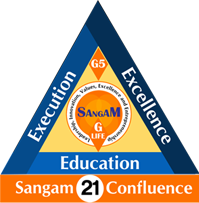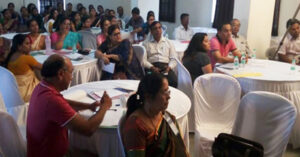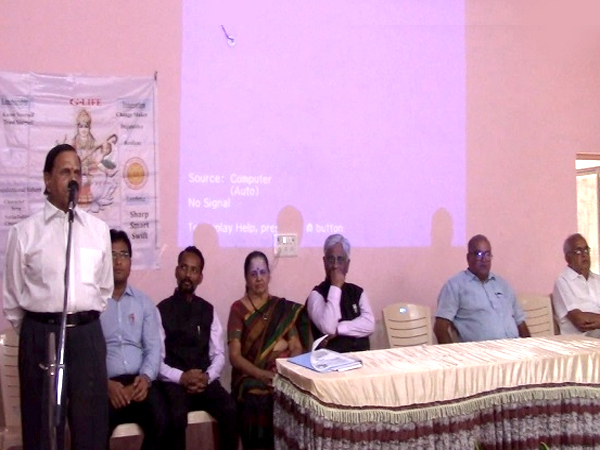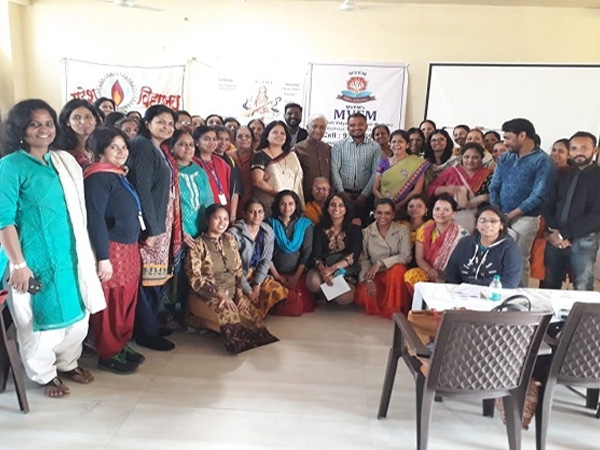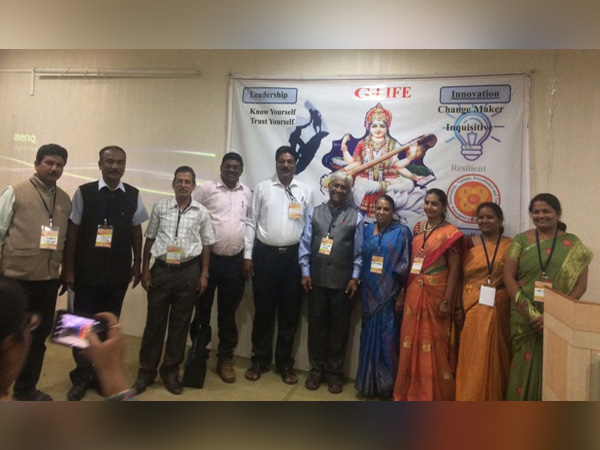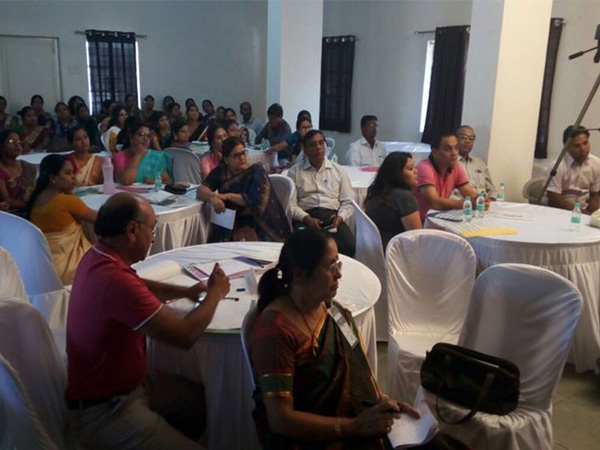
Why achieve expertise: Achieving expertise is commonly understood as skill development. Skill development has become the mantra today. The goal should be to develop skills during one’s academic career because this is the demand of the 21st century. Hence, from time to time, curriculum is upgraded. New topics are introduced without which progress ceases to happen. Since 1974, changes are applied every decade in education. Knowledge-driven learning is in practice today. You must all have experienced this. You all know, when changes were applied in curriculum before, 10 foundational elements in education were introduced, including secularism, gender equality, scientific temperament, etc. You should not forget these because it was the constitutional demand towards social and democratic reform.
Practically, education is different from the formal ongoing rote learning process. The overall goal of education is also to inculcate values. Science is not only a material study but it imparts scientific temperament also. Connecting children to cultural and historical learning inculcates patriotic feeling among children. Every subject has an applicability that justifies the purpose of its learning. This cannot be ignored; otherwise curriculum can become a burden. Knowing all these is one aspect of learning and examination is just a formality. That is why it is more important to inspire the child about the subject before teaching it.
The current change is all about applying the guidelines of UNESCO. This change is about implementing a student-centric system.
Four pillars of education as stipulated by UNESCO are:
1) Learning to know
2) Learning to do
3) Learning to live together
4) Learning to be
The pillars are described as below:
1) Learning to know
We all know that information and knowledge are different. One can attain true knowledge only after knowing the elements/essence/purpose of learning that subject. Constructivism is an output of fusion between values, virtues and attained knowledge. Consequently, one attains skill and expertise. That is why skill development is an essential element of knowledge-driven learning.
2) Learning to do
It is said, “A drop of action is equal to an ocean of theory”. In other words, it is action that develops skill. Work and get skilled. Practice makes man perfect. Perfection is our goal, hence in a student-centric system, practical learning is far better than classroom teaching. This is called learning by doing.
3) Learning to live together
Collaboration, cooperation and tolerance are essential for a democratic society. In today’s intolerant environment, we need to create citizens who can live for others. One has to come out of selfishness and become tolerant for social and national development.
The Upanishad says:
Om, Sahana Bhavatu, Sahanou Bhunaktu, Saha Veeryam Karava Vahaiy,
Tejaswinam Vadheetamastu Ma Vidhvishavahai
Om, Shanti, Shanti, Shanti
4) Learning to be
Students apply their experiences and imaginations to realize new relationships and objectives. The meaning of education gets aligned to the idea of self. Students attempt to explore new meanings of life beyond concepts and books and teachings of teachers. This is the last stage of knowledge. For students, teachers are mere facilitators.
Four constitutional elements of education are:
i) Students have been given independence of thought and action.
Our Constitution has given freedom of thought and action to every individual. If students apply this during their student life, they can prove to be responsible citizens in future. They will not be suppressed by others’ ideas.
ii) Tolerance towards feelings and interests of others.
Tolerance is an important aspect of a democratic society. Live and let live is the attribute of democracy. If tolerance is not present along with independence, then maintaining peace will be a difficult task in society. That is why secularism and gender equality are important elements of our Constitution. These elements should be seeded during student life itself.
iii) Development of Creativity
For realizing creativity, expressing the originality is essential. For example, as homework, the teacher can ask students to write an essay on friendship. Now, it is not necessary that every student will express friendship through an essay. Some would like to demonstrate friendship through art; others through poetry. Students should be given freedom to do this. That will promote creativity.
iv) Eagerness to work for social and economic transformation
For perseverance, students will have to come out of books and boundaries of classrooms. Teachers should arrange interaction with people who have achieved success through hard work. Teachers can plan and initiate action items like Swacchata Abhiyaan, Environment Protection, etc.
Relevance in Education: The above four elements induce change in curriculum with time. That is why curriculum changes at regular time intervals. Such changes should be in accordance with the age and personality of the student. They should enable students to be useful in society. Many times, education that is relevant to an individual may not be good to the society and the nation. But we have to create able citizens for tomorrow. Knowledge-centric learning promotes independent thinking in a student. But that does not imply that students will carry out anti social activities. Nation building comes out of the quality of learning together of a student. Perseverance helps students to excel in society. Creativity helps them to bring about transformation in society. Therefore relevance of education is important.
Every person is a discovery of independent consciousness. What is his capacity and what can he do? This has to be observed by the teacher. Teachers are no doubt doing this – we only want to hand-hold the teachers in their effort. The four pillars of G-Life are foundations of these ideas: Leadership, Innovation, Foundational values, Excellence and Entrepreneurship.
